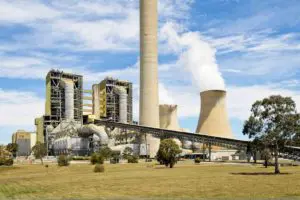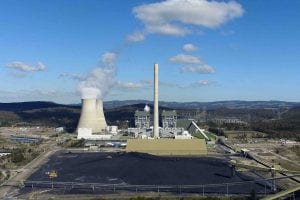The 42-year-old Vales Point coal-fired power station is set to receive $8.7 million in public funding for plant upgrades, despite criticism that the funding is both unnecessary and could ultimately be used to increase the use of coal.
The 1,320MW Vales Point power station is owned by Delta Electricity, which in turn is primarily owned by businessman and Liberal party donor Trevor St Baker, and is set to receive the funding after it was included in the federal budget delivered on Tuesday.
St Baker was part of a consortium that purchased the Vales Point power station from the NSW Government for just $1 million in 2015. After wholesale electricity prices surged to record high levels, the power station was revaluated as being worth more than $700 million, and will now receive public money to cover some of the costs of upgrades.
The funding has been criticised as being an unnecessary intervention into the energy market, that may discourage investment in new, lower emissions, power stations. Likewise, some have noted that the main beneficiary of the funding will be a long-term Liberal party donor.
It is understood the $8.7 million in funding will cover at least part of the cost of a turbine upgrade at the Vales Point power station, improving the energy efficiency of the ageing plant, reducing the emissions that the power station would otherwise produce. But it is not expected to lead to an extension of the plant’s life. It is currently due to close in 2029.
The funding will be provided under an ad hoc grant program, designed specifically to provide funding to Vales Point, that will require the power station to demonstrate how it will “reduce emissions, improve efficiency and improve reliability”. The funding is expected to be used to fund a refurbishment to a turbine at the Vales Point plant, to boost output by around 30MW.
“The Vales Point power station is a major supplier of electricity in NSW. This grant will make Vales Point more reliable, more efficient and deliver much needed dispatchable power in NSW,” federal energy and emissions reduction minister Angus Taylor said.
“Importantly, the upgrades will also reduce emissions by more than one million tonnes. With the Liddell Power Station expected to close in 2023, securing additional reliable capacity in NSW has never been more important to keep prices low and the lights on.”
The Morrison government has stressed that the funding is not intended to extend the operational life of Vales Point, which is scheduled to close in 2029.
Think tank The Australia Institute said that the power station had been lobbying for public funding for several years, and had been unsuccessful at convincing the government to provide funding under programs like the Emissions Reduction Fund and the Grid Reliability Fund, with funding ultimately provided directly under the budget, and could be the first project to receive funding under the government’s Underwriting New Generation Investments (UNGI) Scheme
“Trevor St Baker’s Delta Electricity has been lobbying the federal government for years to get taxpayers to fund his coal plant upgrade,” the Australia Institute’s climate and energy program director Richie Merzian said.
“The likely upgrade of the 42 year old Vales Point coal plant, at taxpayers expense, would only reduce its emission by less than 2% till 2029.”
“Trevor St Baker has been pushing to extend the life of Vales Point by two more decades, which if successful could result in up to 140 million tonnes of carbon pollution, the equivalent emissions of 15 years worth of domestic flights. The Vales Point coal plant upgrade through Angus Taylor’s Underwriting New Generation Investment Program is concerning and there is good reason why the Auditor General is currently investigating the whole program,” Merzian added.
The funding has been criticised by environmental groups, which have argued that the federal government should not be using public funds to fund the continued operation of Australia’s ageing fleet of coal fired power stations. Greenpeace Australia has previously blamed the Vales Point power station for a significant spike in particulate pollution.
“Ageing coal-burning power stations like Vales Point should not be allowed to continue to pump out toxic air pollution that damages human health and exacerbates the climate crisis. It is unconscionable that in a pandemic the Morrison Government is using public money to help ageing and unreliable coal-burning power stations like Vales Point make more people sick,” Greenpeace Australia Pacific Program Director, Kate Smolski said.
“The dangerous levels of air pollution at Vales Point highlights the urgent need to swiftly replace our coal-burning power stations with clean energy sources like wind and solar and in the meantime, to protect communities with pollution controls which are based on expert medical advice.”
Update: Delta turns down Taylor’s $8.7 million grant for Vales Point upgrades






